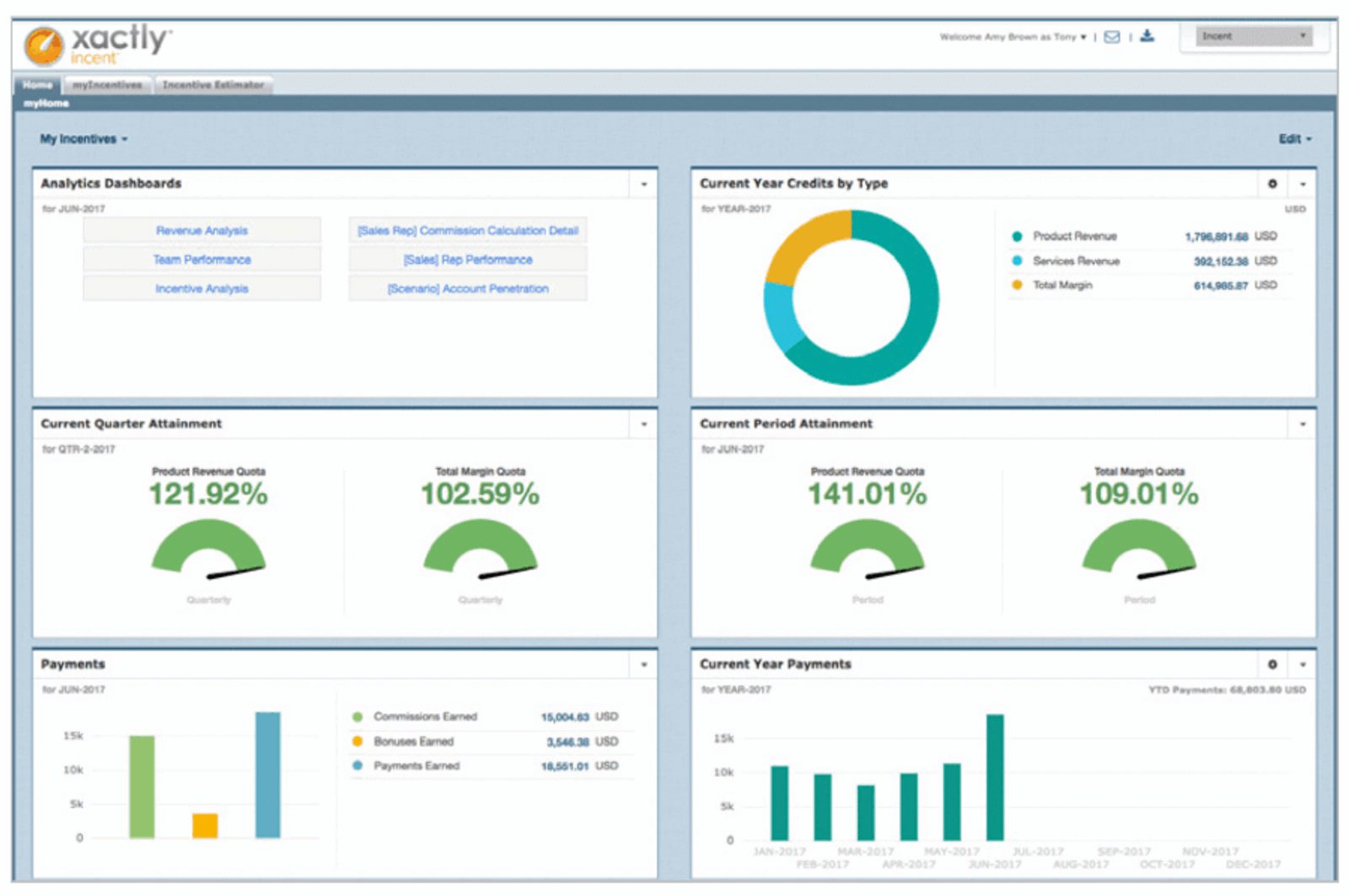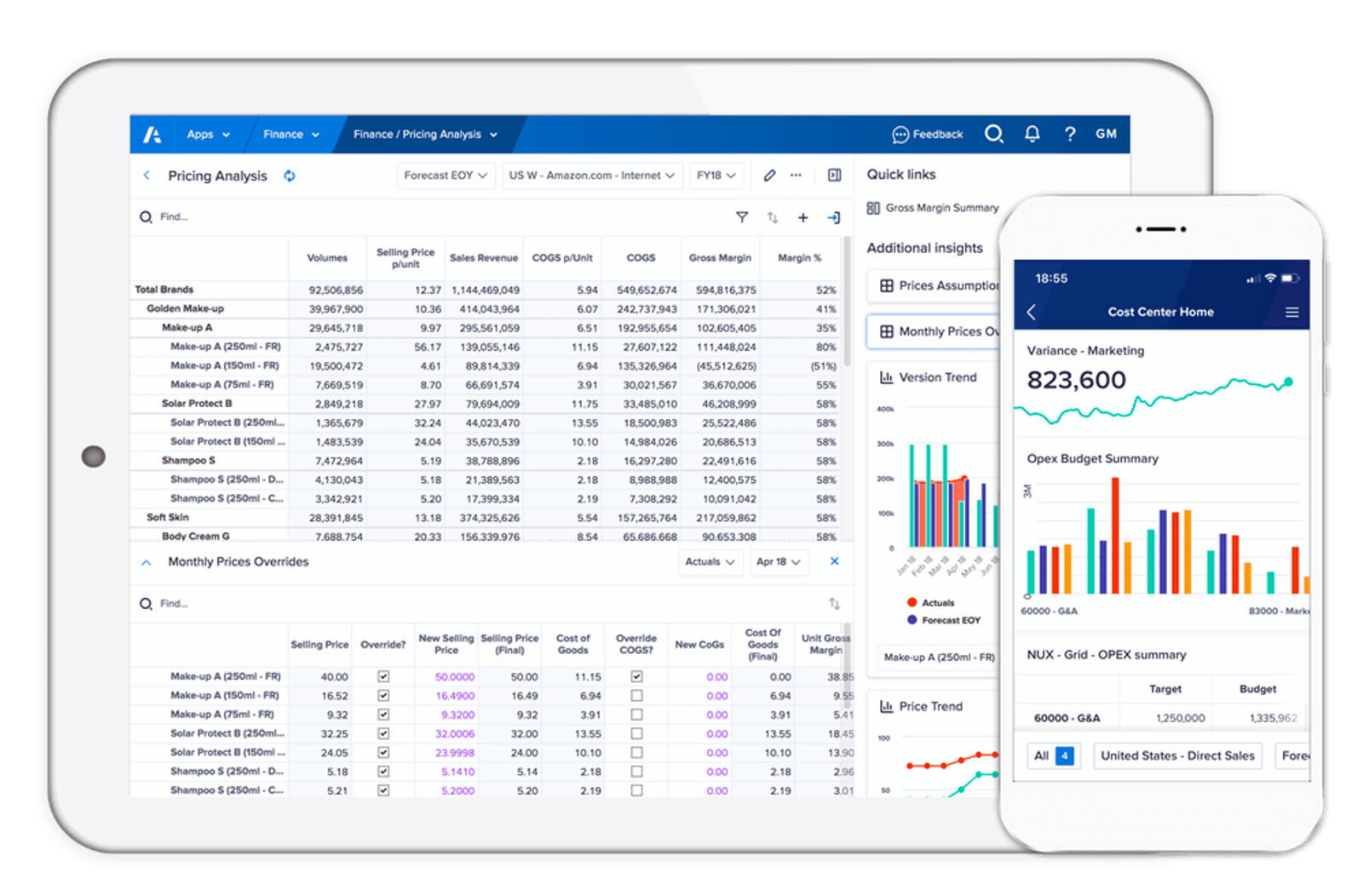Managing a team of salespeople is a complex discipline.
And it doesn’t typically involve standing at the front of a boiler room screaming vague platitudes like ABC (Always Be Closing).
Instead, managing a sales team requires careful attention to motivations, incentives, individual skills, and weaknesses. These will help your team achieve their performance potential.
And it is no surprise then that nailing sales performance management requires its own unique skills and processes.
In this article, we’ll explore what these are and discuss 7 of the most important best practices for sales leaders to master. Then we’ll cover how sales performance management software can make the whole process quicker, easier, and more effective.
Table of contents
What is sales performance management?
Sales performance management is a discipline that focuses on improving the performance of individuals on your sales team.
It’s a practice of sales leaders (sales manager, VP of sales, etc.) that involves:
- Interpreting sales analytics to identify coaching opportunities
- Designing incentive plans that motivate
- Meeting regularly with individual sales reps
- Conducting group sales training sessions
Sales performance management is a discipline that should be continual. It’s not just about training new sales reps but about developing the skill sets of everyone on your team, regardless of age, stage, or experience.
And most of us imagine 1 of 2 sales team scenarios:
- The aggressive sales leader barking orders at (or berating) reps for not meeting their target last month.
- The “cheerleader” sales manager who provides tons of “you can do it” encouragement but not a whole lot of actionable advice.
Neither of these manager types embodies what effective sales performance management looks like, though they are components of it (just in less extreme versions).
Effective sales management doesn't berate reps for not meeting their targets, but it does hold salespeople accountable for their role expectations.
It doesn’t involve “cheerleading” but does look for ways to motivate sales reps to do their best.
Above all, great sales performance managers look for opportunities to provide real-world coaching and advice that upskills sales reps and helps them achieve their fullest potential.
7 best practices for sales performance managers
All of that sounds great, right?
But what exactly does sales performance management look like from a tactical viewpoint?

Take note of these 7 best practices for sales performance managers.
Diving deep into each one will improve your ability as a sales leader and, as a result, help you continue to develop your sales reps.
1. Get your territory planning nailed down
Territory planning is the process of assigning sales reps to targeted geographical areas.

You might, for example, divide your North American sales team into 3 territories:
- West
- Central
- East
Poor (or non-existent) territory planning leads to a lot of double work and a lack of clarity among team members (“Who’s got that lead?”).
Effective territory planning draws clear lines between regions and reps, which is often used as a motivation tool.
For example, many sales leaders pit territories against each other in competition for sales volume. This creates healthy competition while simultaneously encouraging teamwork, as sales reps working on the same territory band together to outperform other groups.
2. Design incentive plans that actually incentivize
Incentive plans (aka commissions) are a huge component of sales motivation. The earning potential that comes from a great incentive plan is one of the major reasons many get into a sales role in the first place.

But not all sales incentive plans are motivating.
For example, take the used car salesperson who is incentivized on a per-unit basis. They receive a fixed dollar amount for every vehicle sale. The sale price doesn’t matter here, just the number of cars leaving the lot.
The rep is motivated to sell cars rather than maximize profit. It doesn’t matter if a sale makes a $1,000 or $5,000 profit. However, this difference is crucial to the car yard. In this example, the incentives are misaligned.
A sales manager at this organization will no doubt be pushing their team to minimize discounting and maximize profit, but if the team is motivated by the number of cars leaving vs. the number of dollars coming in, then the manager’s efforts will be ineffective.
Instead, the sales manager should design a new incentive plan focusing on profit margins over unit sales or combining the 2.
When designing your commission structures, pay careful attention to the kinds of activities you’re incentivizing and how that might relate to your overarching organizational objectives.
3. Connect with sales reps on an individual level
The best sales performance managers know exactly what motivates their sales reps individually.
Even when a given sales rep is extrinsically motivated by earning potential, it is insufficient to consider that money itself is what is driving that person.
After all, money is useless in a vacuum; it’s what those funds are used for that matters.
To be effective as a performance-oriented sales leader, it's crucial to understand what drives individual motivation.
Say, for example, you identify through a one-on-one meeting that one of your sales reps is saving for a deposit on a house.
Now, your motivational comments and advice can be directly linked to that goal (“Look how much closer you’ll be to that deposit if you hit quota this month”).
4. Hyper-personalize sales coaching efforts
Group training is an important activity, but it should not be the only type of coaching you employ as part of your sales performance management strategy.
Use sales performance management software (discussed below) to identify areas where individual reps can improve and then design hyper-personalized coaching sessions to upskill them.
Let’s say you identify that a specific rep has a much lower close rate than the rest of the team. You want to support this rep’s weakness, but does it need to be in a group setting? This is the perfect place to personalize.
Here, you might:
- Organize a one-on-one coaching session with that rep
- Run through some call recordings to identify problem areas
- Discuss how the rep should approach those conversations instead
- Use role-play to help them practice the word tracks and soft skills you’ve just taught
5. Focus on sales skills, not just product knowledge
Product knowledge is obviously important for sales performance; if reps don’t know what they’re talking about, they’re unlikely to convince customers of the product value.
However, simply reciting the features and benefits of a product isn’t enough. Great sales leaders also focus on upskilling reps in general sales skills.
A great way to do this is to create role-play scenarios where reps use the skills you’re teaching to sell something other than your actual product.
For example, a team of salespeople at a marketing agency might practice selling cybersecurity consulting.
The idea is that reps need to think deeply about how the skills you’re teaching—like needs identification, rapport building, objection handling, or pain point amplification—can be applied to any scenario rather than practicing the word tracks they’re already intimately familiar with.
6. Create visual leaderboards to encourage competition
Effective sales performance managers create healthy competition among individuals by allowing them to see everyone’s performance at a glance using a visual leaderboard.

You should be able to create this in your CRM platform, though it might be helpful to set up a dedicated screen displaying current results.
This way, when reps pass by the leaderboard, they can celebrate each other’s wins and get fired up to see their name move up in the stats.
7. Keep communication open on strategic initiatives
One of the biggest detriments to sales rep motivation is when they feel their work is disconnected from high-level strategic goals.
Businesses, particularly young ones, pivot and change strategic directions regularly. Unfortunately, the impact of these changes on an individual’s day-to-day job isn’t always communicated clearly.
Whenever the senior leadership team approves a strategic change, pull your sales team together and discuss what that means for their role.
You should cover:
- Why the change is occurring
- How that might change the priorities of the sales team
- How targeting, positioning, and sales processes might need to adjust, and why
- Any questions reps have about the change
Sales performance management software
Sales performance management is most effective (and efficient) when powered by specialized software that provides powerful insights.
Here are 4 of the best options.
1. ActiveCampaign
ActiveCampaign is a customer experience automation platform with a robust suite of tools for marketing, support, and, of course, sales performance management.

With ActiveCampaign’s built-in CRM, sales leaders can take advantage of advanced automation to speed up workflows and access helpful insights when they need them.
Set up an automated report to your email every week, build custom dashboards for individual performance comparison, and track progress against quotas all in one place.
ActiveCampaign is best for small and medium-sized businesses that are actively scaling and looking for a way to drive performance from a growing sales team.
Try it now, for free
2. Varicent
Varicent is a suite of sales and revenue performance software tools.

Key features include:
- Revenue intelligence and sales forecasting tools
- A comprehensive incentive compensation management platform
- Sales planning functionality
- Individual performance monitoring
Varicent is best for mid-market and enterprise-level companies that already have a solid CRM system but need a more comprehensive sales performance management solution on top of their existing solution.
3. Xactly
Xactly is a revenue intelligence platform that helps sales leaders plan more effectively and accurately manage compensation plans.

Key features of this sales productivity and quota management tool include:
- Automated sales planning functionality
- Data-driven sales incentive compensation management
- Revenue performance analytics like earnings per employee
Xactly is best for organizations developing a Revenue Operations team and needing a robust software solution to report on and manage revenue.
4. Anaplan
Anaplan is a business planning platform that extends into sales performance management through helpful sales planning tools.

Sales organizations can take advantage of these key features:
- Territory management and planning functionality
- Custom dashboards to track performance against business objectives
- Collaborative, real-time data in a single source to eliminate data silos
Anaplan is a comprehensive business planning tool that’s best for companies using the platform’s features across all departments. Otherwise, it’s unlikely to be cost-effective.
Frequently asked questions
How do you measure performance in sales?
Measuring performance in a sales environment depends largely on the metrics you use to monitor sales rep success. This is going to be highly customized to an organization's needs.
For instance, one team might measure performance in units, like a used car yard celebrating the number of vehicles it sold last month. Another might measure sales performance in dollars.
In any case, some of the most common sales metrics to measure include:
- Total revenue
- Average revenue per account
- Customer churn
- Percentage of revenue from new customers
- Units sold
- Win rate
- Year-over-year growth
- Customer lifetime value
- Quota attainment
What are sales performance tools?
Sales performance tools are specialized software platforms that help sales leaders get the most out of their reps. They offer features like:
- Sales performance analytics
- Conversation intelligence
- Customizable dashboards
- Coaching cards
What does good sales performance management involve?
Good sales performance management primarily involves identifying ways to improve sales rep skill sets, then delivering customized training and coaching to help salespeople reach their potential. This typically takes place on both a group and individual level.
Conclusion
Sales performance management is a critical aspect of the sales leader’s role.
Effective performance management helps sales reps attain their quotas more often. It can also positively impact team morale, motivation, and job satisfaction.
The best sales leaders use automated insights from a powerful sales performance management platform like ActiveCampaign.









